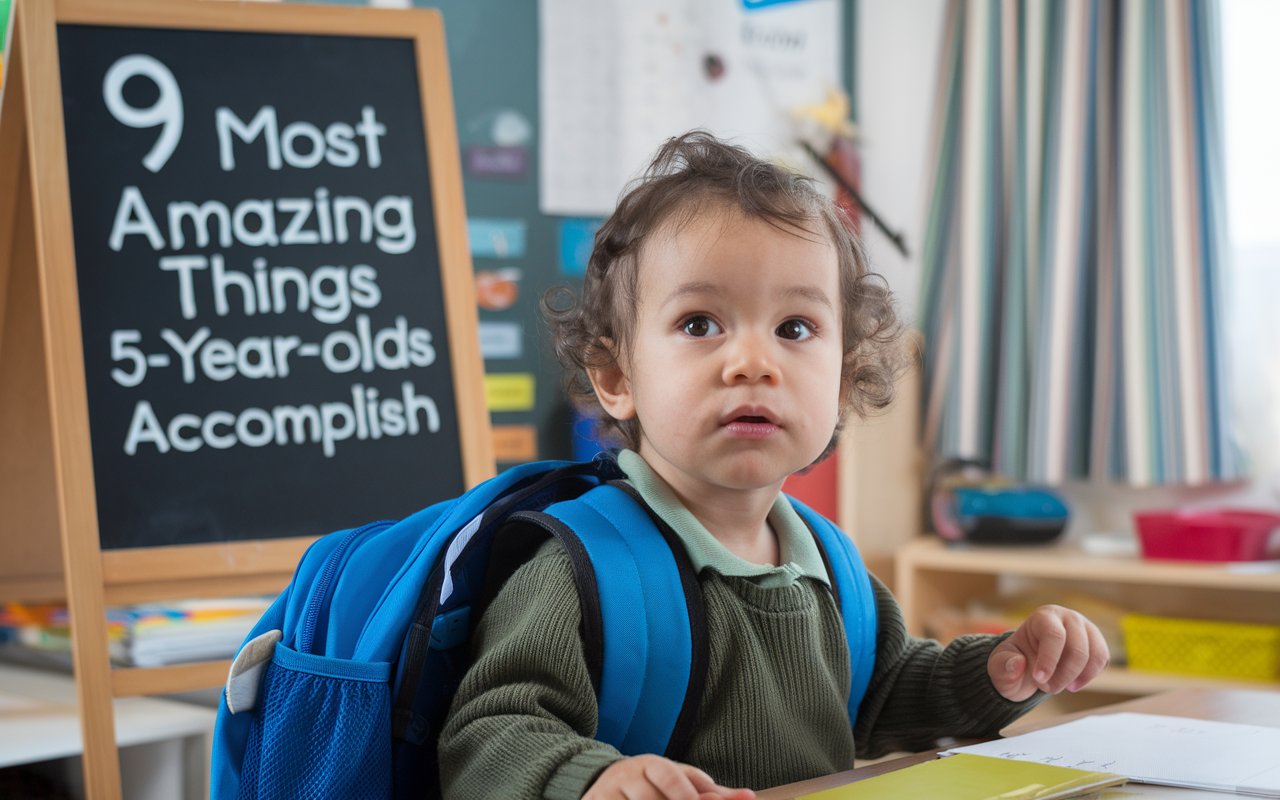
The journey of childhood development is filled with incredible milestones, and the age of five is particularly special.
At this stage, children experience rapid growth in cognitive, social, emotional, and physical skills, setting the foundation for their future learning and interactions. Understanding these developmental achievements can help parents, educators, and caregivers nurture young minds effectively.
This article explores the nine most amazing things 5-year-olds accomplish and provides insights into their significance.
Mastering Language and Communication Skills
Mastering language and communication skills is crucial for expressing thoughts, emotions, and ideas effectively. Children develop these skills through listening, speaking, reading, and writing. Engaging in conversations, storytelling, and interactive activities enhances vocabulary and comprehension. Encouraging questions and active listening fosters confidence in communication. Reading books aloud helps with pronunciation, grammar, and sentence structure. Social interactions and role-playing games improve verbal and non-verbal communication. Consistent practice and positive reinforcement strengthen language mastery over time.
Developing Early Reading and Writing Abilities
Developing early reading and writing abilities lays the foundation for literacy and academic success. Exposure to books, storytelling, and rhymes enhances vocabulary and comprehension. Encouraging children to recognize letters, sounds, and simple words builds phonemic awareness. Practicing writing through tracing, drawing, and forming letters strengthens fine motor skills. Engaging in interactive reading fosters a love for books and improves retention. Creating a print-rich environment with labels, signs, and accessible reading materials supports learning. Positive reinforcement and daily practice help children gain confidence in reading and writing.
Understanding Basic Math Concepts
Basic math skills, such as counting to 100, recognizing numbers, and performing simple addition and subtraction, start developing around this age. Many children can also understand basic time concepts, patterns, and sequences, preparing them for more advanced mathematical learning.
Enhancing Problem-Solving and Critical Thinking
Five-year-olds exhibit improved problem-solving abilities and critical thinking skills. They can complete puzzles, find solutions to simple problems, and make decisions based on logic and reasoning. This skill set helps them navigate challenges and fosters independence.
Refining Fine and Gross Motor Skills
Physical development is another remarkable achievement at this age. Five-year-olds demonstrate refined fine motor skills, such as cutting with scissors, drawing recognizable figures, and using utensils correctly. Their gross motor skills also improve, allowing them to run, jump, climb, and ride a bike with greater coordination.
Strengthening Social and Emotional Intelligence
Social interactions become more meaningful at this stage, as children develop friendships, learn to share, and understand empathy. They begin to recognize their emotions and those of others, which aids in conflict resolution and cooperation. These emotional intelligence skills are essential for building healthy relationships.
Expanding Creativity and Imagination
A 5-year-old’s imagination flourishes, leading to creative storytelling, role-playing, and artistic expression. Their ability to think outside the box enhances problem-solving and innovation, key skills for future academic and personal success.
Gaining Independence and Responsibility
Children at this age start taking on small responsibilities, such as dressing themselves, brushing their teeth, and tidying up their toys. These tasks promote self-reliance and build confidence in their abilities.
Developing a Stronger Sense of Self
By the age of five, children start developing a clearer sense of who they are as individuals. They begin to recognize their unique interests, strengths, and preferences, which play a crucial role in shaping their personalities. At this stage, they become more vocal about their likes and dislikes, expressing their opinions with growing confidence. Whether it’s a preference for certain colors, foods, toys, or activities, these choices help define their emerging sense of identity.
Parents, caregivers, and educators can nurture this growth by providing opportunities for exploration and self-expression. Simple activities such as allowing children to choose their clothes, select a bedtime story, or pick a hobby can empower them and reinforce their independence. Positive reinforcement, praise, and open conversations about their feelings and preferences further strengthen their self-esteem.
Additionally, engaging children in social interactions, group activities, and creative play helps them understand their place in the world. As they interact with peers, they learn to appreciate differences, express themselves effectively, and build meaningful relationships. This early sense of identity lays the foundation for emotional intelligence, adaptability, and a lifelong ability to navigate social environments with confidence.
FAQs
1. What are the most important skills a 5-year-old should have?
A 5-year-old should have basic language, math, social, motor, and problem-solving skills. They should also show independence in daily tasks.
2. How can I help my 5-year-old improve their reading skills?
Encourage daily reading, use phonics-based games, and engage in interactive storytelling to develop literacy skills.
3. What are common emotional challenges for 5-year-olds?
They may struggle with frustration, learning to share, or expressing emotions appropriately. Teaching emotional regulation strategies can help.
4. How much physical activity does a 5-year-old need?
At least 60 minutes of active play daily, including running, jumping, and climbing, helps develop their motor skills.
5. What are signs of advanced development in a 5-year-old?
Advanced children may show early reading skills, strong problem-solving abilities, or an exceptional memory and creativity.
6. How can I support my child’s independence?
Provide opportunities for self-care, assign small chores, and encourage decision-making in age-appropriate situations.
7. What role does imagination play in a 5-year-old’s growth?
Imagination fosters creativity, problem-solving, and social development through storytelling and pretend play.
8. How do I encourage positive social interactions?
Teach sharing, empathy, and turn-taking through playdates, team activities, and modeling good behavior.
9. What should I do if my child struggles with motor skills?
Provide activities like drawing, puzzles, and outdoor play to strengthen coordination and dexterity.
10. How do I prepare my 5-year-old for school?
Encourage a love for learning, establish routines, and develop early literacy and math skills to ensure school readiness.
Conclusion
The age of five is an extraordinary period of development, filled with incredible achievements that shape a child’s future.
From mastering language and problem-solving to developing emotional intelligence and creativity, these milestones highlight the remarkable capabilities of young minds.
Supporting and nurturing these abilities ensures that children grow into confident, capable, and curious individuals.




